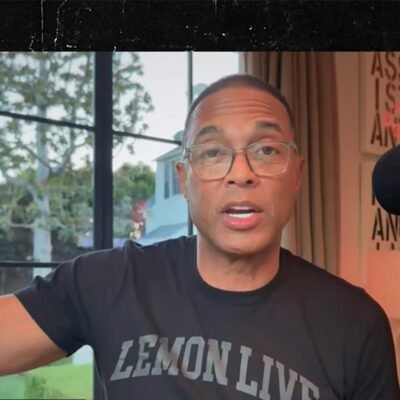There’s not much time to dwell on one game or another during Big 12 play, with a game every Saturday followed by another a few days later. Previously that had been on a Monday or Tuesday night, and usually with a flight in between, but this time around Arizona’s weekend followup is on Wednesday night and is at McKale Center for the second consecutive game.
The sting of that last McKale outing, a 96-95 loss to BYU that was decided on a controversial foul call, has likely not wore off for many fans. Internally, though, moving on was the only acceptable move.
“It’s what we do,” UA coach Tommy Lloyd said Tuesday afternoon. “We got Utah coming in here and no one’s hanging their head, and we didn’t hang our heads yesterday at practice. We understand it’s tough. I think there’s a lot of positives to build on from the BYU game. I think the best thing you can do is figure out a few the areas you want to improve in, and maybe a few of the areas you want to continue to to strengthen and move on to the next one.”
After the loss, Lloyd made comments about his team appearing “casual” in the leadup to the BYU game. He demanded that he see “the most focused group” when practice resumed Monday.
Did that happen?
“I’m going to judge the results on the performance Wednesday,” he said.
Here’s what to watch for when No. 22 Arizona (18-9, 12-4 Big 12) hosts old Pac-12 foe Utah (15-12, 7-9) at McKale:
An opposing team in turmoil
Utah lost by four at UCF on Sunday afternoon, its fifth consecutive road loss, dropping it into a tie for ninth place in the Big 12. That’s much better than the last place projection made by conference coaches before the season but wasn’t good enough in the eyes of school administrators, who fired Craig Smith on Monday.
Smith was 65-62 in four seasons with the Utes, who reached the NIT semifinals last year but haven’t made the NCAA Tournament since 2016.
Lloyd can’t recall a time that he’s coached against a team so soon after a coaching change, let alone immediately following a termination. He questioned the timing of the move, too, with four games left in the regular season.
“I feel for the players, I feel for the coach, I feel for his family,” he said. “I’m not an administrator. I don’t know why it makes sense to make a move in-season. I mean, to me, what does that say to the kids? What does that say to your fan base? What does that say to the coaching staff. But again, people make decisions for whatever reason. I don’t need to be like wasting my energy speculating on why or whatever they’re doing.”
The Utes will be coached the rest of the way by assistant Josh Eilert, who was also interim coach last year at West Virginia following Bob Huggins’ firing in July 2023. Eilert was the lead recruiter on bringing former Arizona guard Kerr Kriisa to Morgantown last season and him not getting the permanent job likely contributed to Kriisa ending up at Kentucky.
Asked if the coaching change impacts how Arizona scouts Utah, Lloyd said he would be surprised if the Utes do anything drastically different.
“I don’t think they’ve had a lot of time to react,” he said. “I’m assuming (the firing) just happened yesterday. I’m assuming they might have taken the day off coming back from Central Florida. Maybe they practiced, maybe they put in an entire new offense and an entire new defense in 24 hours. If they did good for them. We’re preparing like we normally would have prepared had this unfortunate thing not happened.”
About the Utes
Despite its sub-.500 conference record, Utah has several things going for it that could make it a tough out. For one, the Utes are the third-longest team in the country with an average height of 79.4 inches (Arizona averages 78.0), and all five starters the past 13 games are 6-foot-6 or taller.
“They have incredible size and length,” Lloyd said. “They’re sound defensively, they’re not doing anything crazy. They’re really kind of packing it in and making you play over size and length consistently.”
Utah is 12th out of 16 teams in Big 12 play in adjusted offensive efficiency, and is shooting only 42.6 percent overall and 29.3 from 3. But the Utes lead the nation in assist rate, at 67.3 percent, and senior guard Gabe Madsen leads the conference in 3s made (82) and attempted (247).
Madsen has seven games with at least five made triples this season, and in five career games against Arizona is 18 of 39 (46.2 percent) from deep.
“This Madsen kid’s been around for a minute, and he’s just an incredible high energy player,” Lloyd said. “He can shoot high degree of difficulty shots and get hot and make some of them. And so he’s hard to guard. They do a good job playing their concepts, we call that kind of some delay actions. They’re obviously a dangerous team.”
Smart fouling
Letting the officials play a big role in any game is a precarious plan—too soon?—but Arizona has usually come out on the positive side this season in terms of trips to the foul line. The Wildcats average 20.5 foul shots per game in Big 12 play, 5th-most, and are No. 1 in accuracy at 79.6 percent.
Utah averages 21 free throw attempts per Big 12 game, third-best in the league, but only makes 61.9 percent of those freebies.
Leading scorer Madsen is shooting 83.7 from the line in conference play but attempts only 3.1 per game, while forward Ezra Ausar is at 59 percent and center Lawson Lovering is shooting 36.8 percent and had a game earlier this month in which he was 1 for 9 from the line.
Might there be some Hack-a-Ute going on? Lloyd wouldn’t rule it out, but he said who to foul isn’t as important as who does the fouling.
“Fouls are valuable in college, because you’re usually not playing 12 or 13 guys, and guys only get five,” he said. “So I think you have to factor that in as well.”
A (hopefully) better behaved crowd
As hard as the end of the BYU game was to stomach, it paled in comparison to the vomit-inducing actions of the Zona Zoo student action afterwards. An anti-Mormon chant was directed at the Cougars as they left the court, one that could be heard on the TV and radio broadcasts.
Arizona issued an apology that evening, and Zona Zoo representatives did the same on Monday, but Lloyd went out of his way to point out his displeasure with the crowd.
“My biggest disappointment was the way our fans and students reacted to some of their players coming off the court,” he said. “There’s no place in society, let’s just start with that overall, but especially in collegiate athletics, where anyone’s religion or race should become a focal point ever. Ever. That was my biggest disappointment. It’s probably not the first time it’s happened to them. It’s disappointing that it continues to happen. And then hopefully, with us being full-time members in a conference with them, that our fans will will learn that that’s just not acceptable. Hopefully it’s an opportunity to be better and do better.
“Every person on the face of this earth deserves respect. And obviously that was not a sign of respect.”
A bit of a kerfuffle occurred during the postgame handshake line, but Lloyd said he’s not on board with some in college basketball who want to do away with that tradition.
“I don’t mind the handshake line because it’s a great opportunity to show class,” he said. “I’m not afraid to show class, even in tough moments. Why can’t you go shake hands with someone who just, whatever, either they kicked your ass, you kicked their ass, or they’re on the fortunate side, you’re on the unfortunate side. How hard is that to do? I understand why people want to do it. You want to avoid these one-off situations. But I also think it’s a great opportunity to show class, to show compassion, to show respect. So I’m always gonna err on that side.”
In case you forgot, ASU refused to shake hands with Arizona after their game in Tempe on Feb. 1, with ASU coach Bobby Hurley sending his bench to the locker room before the game ended.



